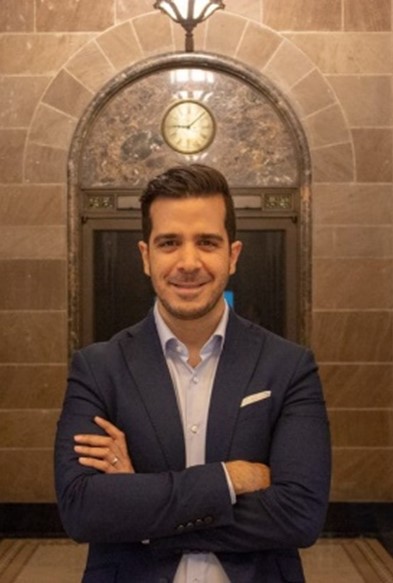How Small and Medium Practices Can Embrace The Power of AI

Narbe Alexandrian, CPA CA and Founder & CEO of Define Capital
With AI offering CPAs the opportunity to scale their practice and focus on strategic and advisory services, small and medium practices (SMPs) are looking to AI to increase productivity, reduce their staff’s manual workloads, and enhance client service.
Narbe Alexandrian, CPA, CA, and Founder & CEO of Define Capital, spoke at CPA Ontario’s recent Small & Medium Practitioners Conference: Tax, Tech & Transformation, about how firms are investing in generative AI (GenAI) tools to upskill their CPAs, and boost their output through task automation.
“If every CPA was armed with the ability to raise productivity without increasing time spent on routine tasks, SMPs could accomplish more, and the profession as a whole would benefit,” he says.
Investing Today to Prepare for the Future
Narbe sees SMPs applying AI solutions to perform time consuming tasks, such as deep research and data collection and reconciliation.
“CPAs gather data from multiple sources—bank statements, ledgers, and accounts payable and receivable—through a process that can take up to 15 hours a week,” Narbe says. “Complexities also emerge from different geographical jurisdictions, tax codes, standards, and securities filings.”
He observed that while larger firms have the capability to program and distribute their own proprietary large language models (LLMs), SMPs rely on an integration of smaller ‘off the shelf’ AI tools for automatable tasks, including data collection and research. These might include Basis AI and Clarity AI, which reconcile data through pattern matching powered by machine learning, or Neo.Tax and Materia AI, which are trained on inputs from tax codes, international standards, SEC and OSC filings, and other guidance documents.
“The challenge for SMPs in adopting AI goes beyond finding the right mix of tools—the heavy lifting will be in training staff on how to use them,” says Narbe. “But existing LLMs like ChatGPT use plain English for inputs, so the learning curve with these new tools shouldn’t be too extreme, especially if the user has at least some familiarity with GenAI.”
Building Trust Through Practice
For SMPs, whose reputations are built upon technical expertise, strong professional ethics, and client relationships, establishing public trust in their use of AI-powered products and services is critical.
“These tools cannot replace a CPA’s judgement and experience.”
Clients expect CPAs to deliver trusted advice informed by accurate data and risk analysis. Upholding professional standards is essential given the potential risks of AI, from data bias and hallucinations to cybersecurity issues.
“We’re only about 24 months into ChatGPT being introduced for consumer use and today’s GenAI platforms are prone to systemic bias and errors, sometimes even ‘hallucinating’ by making up information,” says Narbe. “While some entry-level functions could be replaced through automation, CPAs will still need to check AI’s work.”
Narbe emphasizes that “these tools cannot replace a CPA’s judgement and experience.” And so far, he hasn’t seen firms’ widespread use of AI for accounting functions and tasks. "The SMPs I talk to mainly use these tools for client communications and content marketing.
But Narbe sees a unique moment where new and established CPAs can “seize the opportunities new technologies provide, so they can be successful in their career and drive the profession forward.”
He encourages newer CPAs working at SMPs to reshape their professional strategy by intentionally building their firsthand experience with AI tools, even if it’s for an hour a week.
"When you see these tools fit with an CPA’s daily practice and how they add to an SMP’s value chain, you can develop a view of where you want to focus your time and energy over the long term—and where the profession is headed."
